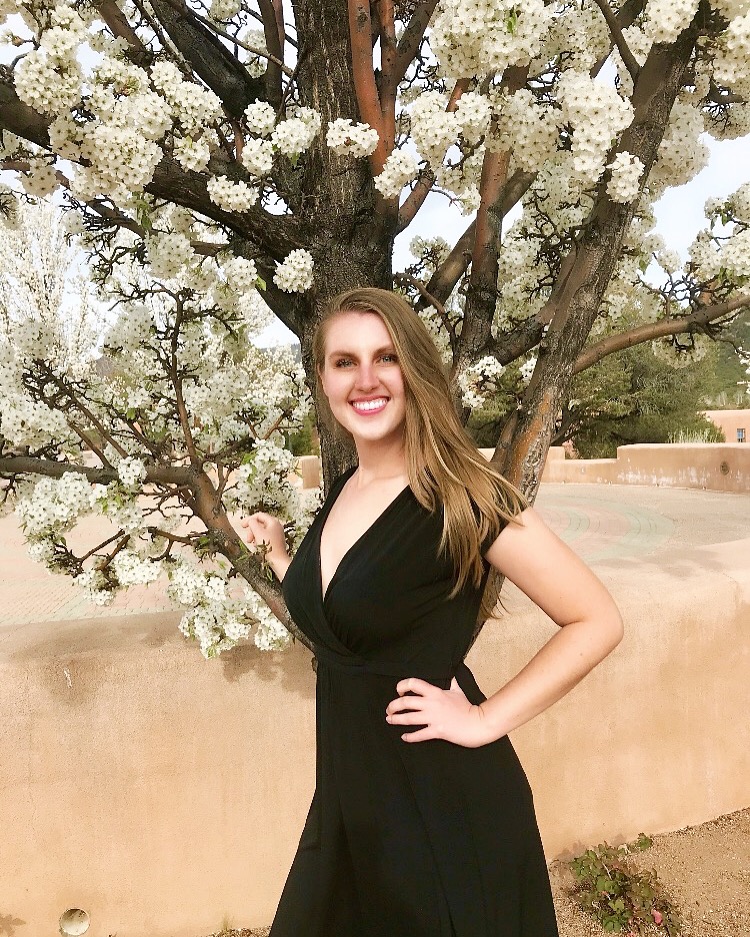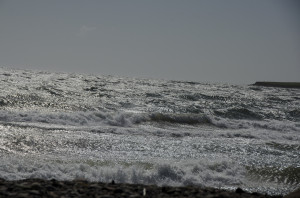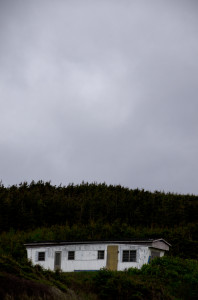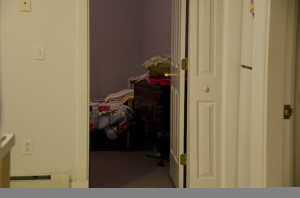Places to Avoid at Dusk
By Sarah Capdeville
This place feels like home, but only because there’s a guy in flannel eying women from the bar. The music drums something unfamiliar, though that image drags me back—a fizzed spark of gin and tonic at the Rhino on Ryman Street, men wearing flannel for flannel’s sake, and women too, and me in the smoky middle, unsure if this was something I wanted, feared, or maybe a little bit of both.
It’s early enough in the night that the club bouncer let us in at no charge, but late enough that I’m swaying somewhere between sleepy and tipsy, not sure where another drink will put me. Given the DJ getting set up across the room, I’m figuring the latter. My heart flits under my breastbone, a sensation that’s dogged me since adolescence. I dart fingers to my throat, hoping to catch the rumble of blood there, but it’s back to a steady drum slugged with wine.
I lift my chin, a trick for confidence I’ve been trying out, and skirt close to my group of friends. We claim a booth, wander to the bar to order drinks. “A cab,” I say, feigning poise, and the bartender doesn’t card me. I keep my tab open.
Not that I went out much back home. Weekends, I stayed in doing schoolwork while classmates littered old mining quarries with PBR cans. I had a 4.0 to keep up, I told myself, even though half the kids in my AP classes were mooching off their older siblings’ IDs. My first dance, senior prom, I wore a strapless navy dress and my grandma’s pearls, and I lingered on the pillared edge of the ballroom until a guy asked me if I wanted to dance.
I did, but not with him. I scampered back to my group of friends. We left early, shivering in our thin gowns and suits on the walk back to the car. Tiptoed heels across spurs of ice dense as concrete and smooth as glass.
No late nights, no parties, no sliver of recklessness. I set up rules to fill insecurities. My dad taught me which roads to avoid at dusk—Green Meadow Drive, 93 through the Flathead. I didn’t know Montana’s white crosses were unique to the state until I moved two hours away for college, which was two more hours of worldliness. I sipped wine from a bottle passed around a dorm room, pretending it wasn’t the first covert drink of my life, that it didn’t taste like fear and broken metal. Pretending the warmth in my belly wasn’t easing a knot I’d looped too many times to count.
I’ve tipped back plenty of wine tonight, enough to know that my teeth aren’t glinting in the blacklight. Outside of the wooden countertop and lonely-eyed man, not much else reminds me of Western bars; the DJ now bobs to hard rap over the dance floor, where neon lights thread through plumes from a fog machine. My group of friends has moved to circle one wall, but I’ve stayed back in the booth with everyone’s stuff. Someone has to watch it, I tell myself. I tell the same to one of my classmates who plops down beside me, returning to her drink.
“I just can’t keep up anymore,” she sighs. She’s one of the older students in our graduate program, retired from the military. “What are you still sitting here for? You should get out there.”
“Maybe in a bit,” I say. The DJ’s beats are too tight and high; I wish there was a heavy thump of bass that would anchor my footfalls to the floor. I wish I could shake out the tightness in my shoulders, a hesitation that’s always been there. At twenty-five, I can count on one hand the number times I’ve been out dancing—though if I work up the courage, tonight might push it onto my left hand.
My head is fuzzed enough from the wine that I haven’t bolted to the exit yet, though I’m feeling increasingly prodded that direction by the steadily-rising throb of sound. My eyes drift to the dance floor. I have an untiring and unreciprocated crush on a friend, and more often than I should, I catch myself looking in her direction. The decision to come dancing with the group tonight is feeling increasingly rash, especially if all I’m going to do is sit here and pine.
“I used to go out all the time, every base I was at,” my classmate says. She traces the joint of her ring finger. “Take my wedding ring off when feeling single, leave it on when I wanted to be left alone.”
This tugs my attention away from the fogged-up floor. I tilt my head through the dimness.
“Oh, my husband was gay,” she says, sipping her tequila sunrise. “A good friend, also in the military, and this was during Don’t Ask Don’t Tell. People started asking. So we got married. It worked out great for both of us.”
I pull my head back. “That’s really admirable of you,” I say.
She shrugs. “It was what I could do.”
I steal another glance across the room and take a drink. “It still amazes me that wasn’t so long ago,” I say. “A lot has changed. A lot hasn’t.”
The music jumps to a patter of sixteenth notes. I’m thinking of the Gay-Straight Alliance club I joined in high school—as an ally, I told myself—and one friend whose parents asked us to pray for him when he came out. Another friend read the message his mom had sent, something about choices and lifestyles and staying on the right path. We all sat squashed together on a row of couches, unsure what we could do except show support. We didn’t pray.
The fog machine sighs out another navy-tinted inversion. A couple wearing vests strung in Christmas lights strides in front of our table.
“You’re from Montana, right?” my classmate asks.
I nod. “Slower to change there.”
She takes another drink. “I had some friends, two girls, who traveled around the country a couple years back. They said of every state, Montana was the least welcoming to them.”
The acidic bite of the wine needles up my throat. “Really?” I ask.
My classmate offers a small grimace. “Yeah. They said people were pretty cold towards them once they realized.”
“I can see that,” I admit, though I won’t admit how it still hurts to hear. “There are some good places, some bad. You just have to know which to avoid.”
My head trips into a low spin, and I switch to ice water. The music has reached a crescendo too loud to talk over. I’m thinking of pride parades down Higgins Avenue. The two men beaten outside the Rhino for holding hands.
Dating was like dancing, and I only went to that bar with friends, roaming downtown on Friday nights, swallowing heartburn over a gin and tonic someone got me with a fake ID. I was convinced the flannel-decked crowd saw straight through me. They probably did, in more ways than one.
Here, far on the other side of the Mississippi, I watch eclectic bands of people rolling shoulders and shaking hips through the dim fog, and I’m reminded again that this place isn’t home, at least not the home I experienced. It’s no wonder most friends from high school scattered across the country before unhinging their closet doors. No wonder I did the same, six-hundred sagebrush miles from the Montana state line. I was traveling with a good friend, both of us listless in post-college doldrums, and an empty, windblown house in southern Oregon seemed as good as a place as any to start telling. Besides that friend, I didn’t know a soul there, and that was enough. She convinced me to go dancing a couple nights later. Beneath flashing strobe lights, I wound my fingers around an empty margarita glass. Tilted my hips, swayed my shoulders.
I open my mouth, then close it. My friends and I talk a lot about impostor syndrome, of top-notch writers who still admit to feeling like fakes. Here in this club, I feel contrived, like the wine has blushed a mask to my face. It’s slipping away fast. I feel fake among these people who have no hesitations dancing through dusk and dark.
And I feel fake among these memories, lapping back thick with dread, coming-out stories and shocks of violence in a liberal college town. The reality is I go both ways, and for convenience’s sake I could fall for a fly-fisherman and sip drinks at the Rhino with no one batting an eye. I did fall a fisherman once, though never made it past the pining part. At a keg party my junior year of college, I found a spurt of courage beneath all the fear, linked arms with him and spun to pounding bluegrass around the kitchen. Later, as the clocktower across the river counted to midnight, I sped my bike back down Higgins wearing a sober grin. Still pedaling away from that possibility, pedaling hard to a new beat through the cool spring night.
But feelings are never convenient. It took me almost a decade to understand and accept the scope of what I felt, and I crippled my adolescence burying half of those giddy heartbeats out of shame. The other half I weighted with far too much significance, proof against an otherness knotted into a sickness in my gut.
Across the dance floor, the friend who I can’t shake my feelings for bounces with the beat. I watch a moment too long, enough to knock another chip into my heart. Just friends, she’d told me when I asked. For a second I wish I could snuff out those feelings like I used to. Plaster a quick, hard wall and turn the other way, let whatever spark that still catches burn a hole of wrongdoing and not one of longing.
I finish my glass of water and tap the ice cubes into my mouth. I swallow one whole. It slips like a pearl down my throat.
I’m not sure why I’ve shot back all this alcohol tonight, whether against the pining or fear of dancing, but I hate that there’s so much looping in my core, that it takes this much to crack my inhibitions. I hate the walls home stacked, those messages of prayer locked to fault, the silence cutting into kids before they can even ask what it means to feel this way. Montana is a landscape of isolation no matter your gender or orientation. And I’m a product of those limestone gulches, of the people who trim stoicism with drink and break into recklessness like thunderheads over the plains.
Even more I regret the walls I stacked, the rigidity of my own rules that hollowed an absence of experience I can’t get back. I’ll never get it back. Maybe that’s why I’m drunk tonight, chasing a bone-dry thirst to be brash and wild and unburdened by guilt. Maybe I was afraid of alcohol for all those years because I was afraid of what it would dredge up, what a lack of control would loosen my grip on.
And if this was it—watching another woman dance—I wish I hadn’t made those rules for myself. I wish I’d gone to bars dim with Marlboro smoke, gone out with anyone, got my heart broken earlier on, learned better coping mechanisms than paralysis and flight. I wish I’d had that covert drink sooner.
I turn back to my classmate. I can still feel the ice water in my belly, how it weaves through the wine’s iron slosh, how this sharp contrast reminds me of home.
“I’m queer,” I say, which is easier when my mouth is dark with wine, when I’m anywhere but home. Over the music’s electronic pulse and shouts of laughter, it’s the loudest I’ve ever said it. There’s no room in this dark soundscape for an echo, but still I hear those words thrum and settle to the back of my head.
At the bar, the flannel-clad man has given up his scoping. I’m not going to find any bluegrass tonight; I’ve got to ease my muscles into this rhythm. It’s warm outside, but I know that back home winter just won’t quit, that people have given up shoveling snow from their driveways. Soon it’ll turn to packed ice, glossed smooth when the overcast retreats to the coast.
“I’m moving back to Montana,” I add to my classmate. I think of what she gave up marrying her friend, what he gave up, what they both gained. How they sidestepped our country’s laws in order to continue protecting it. There are different kinds of protection, I realize, some barriers we don’t recognize until the view clears on the other side.
“Who knows how it’ll go,” I say. I set my glass on the table, leaving a mouthful of cabernet, and stand. “You alright watching our stuff?”
She waves me on. “Absolutely.”
Gravity banks below me. I keep to the wall, then merge with my group of friends. They grin, opening the circle wider. I’m not feeling buoyed by inebriation or newfound inspiration, but still, I’m out on the dance floor. The tightness holds fast in my shoulders, muscles rolling up the back of my neck as if hunched under a string of inherited pearls.
It was confusion back then, deep-set denial. I picture my heart like one in cardiac arrest—not stopped, but simply quivering, electronic pulses out of synch. I couldn’t tell you what shocked it to a beat I could move to. I couldn’t tell you that it doesn’t fall back into that shaky baseline every once in a while.
I force my shoulders down, collarbones back. Chin up. I’m not sure what to do with my hands, which always seem to curl into themselves. My self-consciousness has snowballed in front of this one friend—just friends—who moves with a freedom I envy. Her smile sparks in the blacklight.
So I give up caring, leave the regret for the morning, for the lonely hours, for the months ahead when I’m deep in the mountains and find myself, strangely, missing these fast beats and bobbing heads. I remember pedaling my bike through the dark, arms spread wide, a different kind of dance, a different kind of rule broken. Below, the fog pools at my feet like rain clearing a valley. I bounce on my toes, churn it from its stalling.
I don’t know how to dance. That’s a foundation of bass-thudded quarries I never touched, and maybe I’ll never reach the underpinning, only know the high ring of its absence. But I can tell you about the roads that catch sunrise while the rest of the world lingers in twilight. I can tell you how to walk on ice, which cracks will hold and which will splinter to midnight waters. I know there’s a rhythm like a heartbeat buried in this terrain of sound. I can tell you what love does when coaxed to silence.
About the Auhor:
Sarah Capdeville received her MFA in creative writing from Chatham University in Pittsburgh, Pennsylvania. Raised in Montana, she’s worked and traveled across Europe and the American West, including four summers as a wilderness ranger in the Rattlesnake Wilderness, her home of homes. Her writing has been published and is forthcoming in Fourth Genre, Flyway, the Hopper, and Bright Bones, an anthology of contemporary Montana writing.
About All Accounts:
All Accounts and Mixture is an annual online feature celebrating the work of LGBTQIA+ writers and artists. For this series, we seek work from authors who self-identify as "queer," while acknowledging that this designation is subjective and highly personal. Our goal is to provide a forum for writers whose voices might be mis- or underrepresented by the literary mainstream. Submissions are open from June 1 to July 1. Poetry, prose, visual art, reviews and interviews will all be considered. Visit Submittable for more details.











